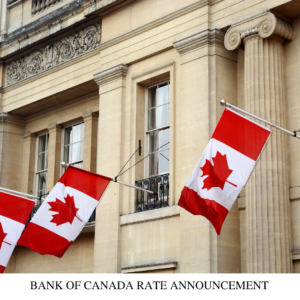|
|
|
|
Each Office Independently Owned & Operated
Posted by:
|
|
|
|
Posted by:
Whether you are upsizing or downsizing, or selling a rental property, there are a few things to keep in mind throughout the process:
Is Your Mortgage Really Portable?
Porting a mortgage involves porting the terms of your existing mortgage to the new property to avoid a penalty and to maintain your current rate.
Though you qualified for the mortgage on the current property, you must requalify for the mortgage to be ported to the new property as well, as though the mortgage is brand new. Your income, any further down payment, and the new property amongst other application details must all be accepted by the lender in relation to the new property before the port can be approved.
Make sure you qualify for where you’d like to go next before you list your current one for sale.
Choose the RIGHT Real Estate Professional
One of the most important aspects of the successful sale of your home or property is to price accordingly. When selling, it is vital to avoid emotions in your decision. To achieve that, it’s helpful to work with a realtor you trust to set a realistic pricing strategy. A real estate agent can help you maximize the sale price and terms that work for you. They’re also invaluable in walking you through every step of the sales process, from staging to negotiation and everything in between.
Improve Your Curb Appeal
Attending to landscaping and any outdoor maintenance or repairs will go a long way in making your property more appealing. A pressure wash and a new coat of exterior paint can also do wonders to give the property a facelift. Keep it simple, but first impressions count.
Get Rid of Clutter
In addition to updating your property’s curb appeal, de-cluttering your space is a must. Removing personalized photos, collectibles, memorabilia, and knick-knacks will help open things up and allow potential buyers to envision their own belongings in those spaces. While major renovations are not necessary, a fresh coat of paint and managing any minor repairs will also help make first impressions count.
Understand the Costs
As you form your plans, be sure to remember the costs involved in selling property. These include::
If you’re looking to sell your home and need mortgage advice or an introduction to a real estate professional, please reach out, I am here to help.
ADAPTED FROM DLC MARKETING
Posted by:

Funding Retirement – Your Property Can Help.
Aside from potential income from renting out part or all of a property, mortgages can supplement income in retirement. While it’s true qualifying for a mortgage can change as we age, a bit of planning up front can help, just before leaving your prime earning years. If you haven’t made advance plans, there are options to help you leverage the equity in property in retirement too.
Home Equity Line of Credit (HELOC): Before retiring, consider setting up the largest line of credit you can qualify for in your highest income years. HELOCs allow you to borrow only what you need, when you need it, and is amongst the most flexible loans with respect to repayment without penalty. Though it’s rare, the lender can request the loan be repaid at any time and the rate of interest can change as well. However, having access to the equity in your home in retirement is a great benefit when managed correctly, and secured with the right lender for you.
Private Loans: Private loans are sometimes an option for retirees with short-term financial needs. Rates are higher, but these loans are easier to qualify for. The value and quality of the property are more heavily weighted than income would be on an application for a regular mortgage. The ability to make the payments is reviewed, but a strong exit strategy is also important. Being able to repay the full amount upon the sale of another property would be an example of a strong exit strategy. Having other property to sell is not always a requirement, exit strategies may vary, as do monthly payment requirements. Some private loans come with an interest reserve, which allows interest to build over the term of the loan, rather than having to make regular payments. Proper use and management of private lending is important due to the costs involved but can be a great benefit to borrowers of any age depending on the circumstances.
Reverse Mortgages: A reverse mortgage can be used to:
These loans are typically taken by borrowers over the age of 55 on their principal residence, but not all lenders have an age restriction on these loans. Rates are usually higher than regular home loans. However, never having to make any payments can lift a burden for those with cash flow issues in retirement, and allow them to stay in their homes.
Lenders offering non-age restricted reverse mortgages can extend them on principal residences, rentals. and second homes in some markets. In all cases, borrowers retain ownership in their homes, and the mortgage is registered just like any other mortgage, but the balance grows over time as no payments are made. Reverse mortgage loans are not granted for more than roughly half the value of the property to allow room for the balance of the mortgage to increase over time. Again proper management of a reverse mortgage strategy is important but leveraging this type of loan can yield great benefits to borrowers who need them as well.
As the Canadian population ages, these are just some of the financing options that Canadians can utilize to enjoy retired life. As every case is unique, to evaluate your options and opportunities, please don’t hesitate to be in touch to discuss your situation with me and to make a plan.
ADAPTED FROM DLC MARKETING
Posted by:
The Market, What’s to Come, Mortgage Options and Opportunities

With this year’s steep increases in interest rates, and as the real estate market has slowed, most are wondering when things will begin to normalize. What caused these conditions? What’s to come as we move ahead? And what choices and opportunities might we have today as they relate to our mortgages and properties?
Looking Back at The Market
Inflation and rising rates are at the forefront of market conditions impacting borrowers today.
Inflation – Since COVID, supply chain disruptions have caused higher costs, which were heightened with the conflict in the Ukraine affecting its iron, steel and food exports, and Russia’s supply of oil and gas to Europe.
Rising Rates – Governments around the world are raising interest rates in response to inflation. The Bank of Canada has increased the overnight rate by .5%, .75% and 1% increments, very unlike its typical .25% moves. The Prime Rate sits at 2.2% above the overnight rate with most banks so has increased in turn affecting variable rate mortgages and lines of credit. Fixed mortgage rates and the rate at which borrowers qualify for mortgages, have increased too.
Looking Ahead
Though the market had inaccurately forecasted where things are today, we nonetheless only have forecasts to work with when planning next steps.
Fixed Rates – Today’s outlook, according to most Canadian bank economists, is for fixed rates to stabilize in the coming year.
Variable Rates – The Prime Rate is forecasted to increase by another .25% to .5% at its peak before leveling according to some, while others predict the Prime Rate will drop again by .5 or 1% by the end of 2023.
Economy and Lowering Rates – The more rapidly rates increase, the more likely a recession occurs, which is when governments typically lower rates again. Lower rates would allow borrowers to qualify for more once again as well.
Property Values – With immigration increasing and development slowing due to higher labour and material costs, real estate values may begin to increase again as supply of new homes begins to be felt in the market in the coming years.
Borrowers Today
Variable Mortgages – For variable rate mortgages with payments that change with the Prime Rate, payments have increased this year by approximately $170 per month for every $100,000 of a borrower’s mortgage balance.
Static Payment Variable Rate Mortgages – For variable rate mortgages with payments that don’t change with the change in the Prime rate, some borrowers are approaching a trigger rate at which their payment no longer covers the interest nor any of the principal owing within a given payment period.
Fixed Mortgages – Borrowers with fixed rate mortgages coming up for renewal may have higher rates than in their previous term. However, the renewals section below should ease some of the concern with rising mortgage payments.
Renewals – When entering a new mortgage term, at the end of 5 years for example, the rate is reset. If the new mortgage rate is double the rate of the initial term, the payment does not automatically double. The payment calculation and rate do not relate on a 1 to 1 ratio, which should bring some relief to borrowers contemplating what their payment might be for their upcoming term.
Borrowers should check into renewal options across lenders well with me in advance of their renewal date. We can plan to ensure they are well positioned for cost savings, taking current opportunities and their future plans into account.
Pre–Qualifying – Some borrowers are preparing for opportunities as the market opens back up or as sudden opportunities present themselves. Doing so in advance gives them the advantage of being able to act quickly working with me should speed be a factor in a negotiation with a seller with tight timeframes.
Choices Today
In response to higher interest rates and less certainty in the market, borrowers are reviewing their options. If you have a concern about qualifying, check with me on the many ways I might assist you in securing a new mortgage or making a change to your current one. Qualifying across lenders is not one-size fits all, and not all lenders have the same criteria for mortgage approvals.
Lowering Minimum Payments – Some borrowers are lengthening their mortgage amortization (length of time it takes to repay the loan) to lower their minimum payment due.
Eliminating Monthly Payments – Some are refinancing to consolidate debts, such as car payments, to stretch the payment over a longer time by incorporating the payment into their mortgage.
Keeping Mortgage Paydown on Track – If their payments don’t increase with the prime rate, some variable rate borrowers are increasing their payments or making lump sum payments to keep up with paying off their mortgage in the time they had planned.
From Variable To Fixed – Some variable rate borrowers are contemplating locking into a fixed rate mortgage for a shorter term to ride out this next period until rates stabilize. Others have locked into a longer term depending on what’s available to them. In each case, the higher penalty that can come with a fixed rate mortgage is important consideration before making the decision to lock in.
Line of Credit Cushion – Some are adding a line of credit to add a cushion by accessing the equity in their home, which can help once they move to have access to deposit funds without having to liquidate investments. Others are using the line of credit as a mortgage to enable them to make interest only payments. This is not a recommended long-term solution however, and the maximum loan amount is limited to 65% of the value of the property.
Second Mortgages – A second mortgage gives borrowers access to their equity, which is also not a long term solution, but can assist with cash flow in the short term, as payments are often interest only.
Age Restricted and Non-Age Restricted Reverse Mortgages – Reverse mortgages are typically taken by borrowers over the age of 55 on their principal residence. Rates are usually higher than regular home loans. However, never having to make any payments can lift a burden for those with cash flow issues in retirement, and allow them to stay in their homes. Other lenders offer non-age restricted reverse mortgages on principal residences, rentals and second homes in some markets. In both cases, borrowers retain the title to their home, and the mortgage is registered just like any other mortgage, but the balance grows over time as no payments are made. Reverse mortgage loans are not granted for more than half the value of the property to allow room for the balance of the mortgage to increase over time.
As every case is unique, to evaluate your options and opportunities, please don’t hesitate to be in touch to discuss your situation with me and to make a plan.
Posted by:

Mortgage Protection Plan (MPP): Lastly in our insurance series, we look at mortgage protection plan coverage.
This is optional coverage, but should be a priority when purchasing property. The purpose of this coverage is to protect your investment, and cash flow, should you or your co-borrower be unable to work due to illness or an accident, or if one if you were to pass away.
A mortgage on a principal residence you occupy with a spouse or partner is typically based on family income. If one of the partners on the mortgage is no longer able to contribute to regular payments, MPP can cover your mortgage payments for up to two years in the case of a disability, and it can pay off the mortgage in its entirety under Life coverage.. These benefits provides support for you and or your family during potentially stressful times.
Disability coverage is important considering the statistics:
Life insurance arranged through work does not often cover the full balance of a typical mortgage in many expensive markets.. Life insurance covering the entire mortgage gives you the piece of mind your family’s home will be taken care of should something happen to you or your partner.
Insurance costs can increase as you age, but the MPP payment can be decreased as the mortgage balance it’s covering goes down.
MPP is incredibly flexible. It’s portable across properties and unlike bank policies, coverage is portable across lenders if you switch lenders if I find you a lower rate at the end of your mortgage term.
Coverage can be brought back up to the original amount at the original payment later as well even as you age. Should you upsize, downsize, or make a lateral move later, you can port the full original amount of the coverage at the payment amount set at your younger age. You can also add coverage from there and blend the extra funds priced at your new age, with your original lower cost coverage if your mortgage is larger on the new property. This helps keep overall future Life and Disability protection costs down as well.
Ask me how the first one or two months of Life and Disability can be free and how coverge can be instant. Why not activate free insurance today and take a few months to ensure you’re adequately covered for the largest investment you may ever make, or may already have made.
If you have any questions about mortgage insurance, or to discuss the best options for you, please do not hesitate to reach out.
The fine print: Terms and conditions apply and this information is subject to approval and change.
Adapted from DLC Marketing
Posted by:

Title Insurance: Another insurance policy mortgage borrowers will encounter is title insurance.
Banks require title insurance to protect their interests should issues arise with how the property is registered, or fraudulent activity calling ownership into question.
As a property owner, you have the option of purchasing this for yourself as well.
Title fraud typically involves stolen personal information or forged documents used to transfer your home’s title to someone else without your knowledge. Fraudsters have also established mortgages on properties that don’t belong to them in attempts to make off with the funds.
Title insurance also covers issues relating to property access, municipal by-laws, neighbouring properties, property taxes owing by prior owners, and more.
The cost is based on the value of your property and is charged as a one-time fee at the time a mortgage is registered.
If you have any questions, please don’t hesitate to be in touch, I’m here to help.
Adapted from DLC Marketing
Posted by:

The Bank of Canada Slowed the Pace of Monetary Tightening
The Governing Council of the Bank of Canada raised its target for the overnight policy rate by 50 basis points today to 3.75% and signalled that the policy rate would rise further. The Bank is also continuing its policy of quantitative tightening (QT), reducing its holdings of Government of Canada bonds, which puts additional upward pressure on longer-term interest rates.
Most market analysts had expected a 75 bps hike in response to the disappointing inflation data for September. Headline inflation has slowed from 8.1% to 6.9% over the past three months, primarily due to the fall in gasoline prices. However, the Bank said that “price pressures remain broadly based, with two-thirds of CPI components increasing more than 5% over the past year. The Bank’s preferred measures of core inflation are not yet showing meaningful evidence that underlying price pressures are easing. Near-term inflation expectations remain high, increasing the risk that elevated inflation becomes entrenched.”
In his press conference, Governor Tiff Macklem said that the Bank chose to reduce today’s rate hike from 75 bps last month (and 100 bps in July) to today’s 50 bps because “there is evidence that the economy is slowing.” When asked if this is a pivot from very big rate increases, Macklem said that further rate increases are coming, but how large they will be is data-dependent. Global factors will also influence future Bank of Canada actions.
“The Bank expects CPI inflation to ease as higher interest rates help rebalance demand and supply, price pressures from global supply disruptions fade, and the past effects of higher commodity prices dissipate. CPI inflation is projected to move down to about 3% by the end of 2023 and then return to the 2% target by the end of 2024.”
The press release concluded with the following statement: “Given elevated inflation and inflation expectations, as well as ongoing demand pressures in the economy, the Governing Council expects that the policy interest rate will need to rise further. Future rate increases will be influenced by our assessments of how tighter monetary policy is working to slow demand, how supply challenges are resolving, and how inflation and inflation expectations are responding. Quantitative tightening is complementing increases in the policy rate. We are resolute in our commitment to restore price stability for Canadians and will continue to take action as required to achieve the 2% inflation target.”
Reading the tea leaves here, the fact that the Bank of Canada referred to ‘increases’ in interest rates in the plural suggests it will not be just one more hike and done.

Monetary Policy Report (MPR)
The Bank of Canada released its latest global and Canadian economies forecast in their October MPR. They have reduced their outlook across the board. Concerning the Canadian outlook, GDP growth in 2022 has been revised down by about ¼ of a percentage point to around 3¼%. It has been reduced by close to 1 percentage point in 2023 and almost ½ of a percentage point in 2024, to about 1% and 2%, respectively. These revisions leave the level of real GDP about 1½% lower by the end of 2024.
Consumer price index (CPI) inflation in 2022 and 2023 is anticipated to be lower than previously projected. The outlook for CPI inflation has been revised down by ¼ of a percentage point to just under 7% in 2022 and by ½ of a percentage point to about 4% in 2023. The outlook for inflation in 2024 is largely unchanged. The downward revisions are mainly due to lower gasoline prices and weaker demand. Easing global cost pressures, including lower-than-expected shipping costs, also contribute to reducing inflation in 2023. The weaker Canadian dollar partially offsets these cost pressures.
The Bank is expecting lower household spending growth. Consumer spending is expected to contract modestly in Q4 of this year and through the first half of next year. Higher interest rates weigh on household spending, with housing and big-ticket items most affected (Chart below). Decreasing house prices, financial wealth and consumer confidence also restrain household spending. Borrowing costs have risen sharply. The costs for those taking on a new mortgage are up markedly. Households renewing an existing mortgage are facing a larger increase than has been experienced during any tightening cycle over the past 30 years. For example, a homeowner who signed a five-year fixed-rate mortgage in October 2017 would now be faced with a mortgage rate of 1½ to 2 percentage points higher at renewal.

Housing activity is the most interest-sensitive component of household spending. It provides the economy’s most important transmission mechanism of monetary tightening (or easing). The rise in mortgage rates contributed to a sharp pullback in resales beginning in March. Resales have declined and are now below pre-pandemic levels (Chart below). Renovation activity has also weakened. The contraction in residential investment that began in the year’s second quarter is projected to continue through the first half of 2023, although to a lesser degree. House prices rose by just over 50% between February 2020 and February 2022 and have declined by just under 10%. They are projected by the Bank of Canada to continue to decline, particularly in those markets that saw larger increases during the pandemic.
Higher borrowing costs are affecting spending on big-ticket items. Spending on automobiles, furniture and appliances is the most sensitive to interest rates and is already showing signs of slowing. As higher interest rates work their way through the economy, disposable income growth and the demand for services will also slow. Past experience suggests that the demand for travel, hotels, restaurant meals and communications services will be impacted the most. Household spending strengthens beginning in the second half of 2023 and extends through 2024. Population growth and rising disposable incomes support demand as the impact of the tightening in financial conditions wanes. For example, new residential construction is boosted by strong immigration in markets that are already particularly tight.
Governor Macklem and his officials raised the prospect of a technical recession. “A couple of quarters with growth slightly below zero is just as likely as a couple of quarters with small positive growth” in the first half of next year, the bank said in the MPR.

Bottom Line
The Bank of Canada’s surprising decision today to hike interest rates by 50 bps, 25 bps less than expected, reflected the Bank’s significant downgrade to the economic outlook. Weaker growth is expected to dampen inflation pressures sufficiently to warrant today’s smaller move.
A 50 bps rate hike is still an aggressive move, and the implications are considerable for the housing market. The prime rate will now quickly rise to 5.95%, increasing the variable mortgage interest rate another 50 bps, which will likely take the qualifying rate to roughly 7.5%.
Fixed mortgage rates, tied to the 5-year government of Canada bond yield, will be less affected. The 5-year bond yield declined sharply today–down nearly 25 bps to 3.42%–with the smaller-than-expected rate hike.
Barring substantial further weakening in the economy or a big move in inflation, I expect the Bank of Canada to raise rates again in December by 25 bps and then again once or twice in 2023. The terminal overnight target rate will likely be 4.5%, and the Bank will hold firm for the rest of the year. Of course, this is data-dependent, and the level of uncertainty is elevated.
Posted by:

This week in our Insurance Primer Series, we’re looking at property insurance.
Home (Property & Fire) Insurance: Home insurance, as most people know it, must be in place before you complete your mortgage transaction whether you’re buying a property or refinancing it. Not all homes or properties are insurable, so if you don’t already own the property, you will need to review this before committing to your purchase.
In addition to protecting against fire damage, home insurance can of course also cover the contents of your home (depending on your policy) and a myriad of expenses should you have to find somewhere else to live while repairs take place after any kind of damage. Anyone purchasing a condo, townhouse, or any kind of strata property must also consider strata deductible insurance. If the strata is at fault for damage to an owner’s unit due to shared plumbing for instance, the owner may face a large expense in having to cover the strata’s deductible which can be very high as of late. Buyers will also want to cover personal belongings or any upgrades. Be sure to check the strata’s insurance policy and take out an individual one on your own unit to cover any gaps.
Additional coverage for natural disasters may also have to be purchased separately. My insurance contacts have helped many of my clients get the coverage they need in time for their purchase and have provided significant savings in the process. For any information on mortgages or insurance, please don’t hesitate to call.
Posted by:

Part I: Default Loan Insurance
The four main insurance product options you will encounter through the mortgage process are often confused for each other, and not all are relevant for every property owner:
Default Loan Insurance, Home Insurance, Title Insurance and Life/Disability Insurance. This week we’ll review default loan insurance.
Default Loan Insurance: First time home buyers often buy with a lower down payment. Default loan insurance is mandatory for purchase of homes with a downpayment of less than 20%. This insurance enables lenders to accept a lower down payment, as low as 5% in some cases, helping those just starting out to enter the housing market. The lender’s interests are protected if the borrower defaults on default insured loans. As such, lenders can afford to offer lower interest rates are offered on these mortgages.
Default insurance typically requires a premium, which is based on the size of the loan relative to the property value. The premium can be paid in a single lump sum but is typically added to the mortgage balance.
In Canada, we have three default loan insurers: the Canada Mortgage and Housing Corporation (CMHC), which is run by the federal government, and two private companies: Sagen Financial and Canada Guaranty.
Next week we’ll review Home Insurance and how it factors in the mortgage process. If you or someone you know has mortgage questions relating to insurance or requires other borrowing information, please give me a call any time.
Adapted from DLC Marketing
Posted by:

Most people thinking about transferring or switching their mortgage want to take advantage of a lower interest rate or to get a new mortgage with terms that better suit their needs.
Up for Renewal?
If your mortgage is approaching renewal and you are considering a transfer or switch – great news! You won’t be charged a penalty, and shopping around may more than make up the cost to transfer in interest savings. You will need to qualify at the current qualifying rate and potential costs may include legal, appraisal, and discharge fees. In some cases, the lender will offer an option to include these fees in your mortgage or even cover some of the costs for you.
Still locked into your Mortgage?
If you’re considering a transfer or switch in the middle of your mortgage term, you will likely incur a penalty for breaking that mortgage. Often, transfers and switches are done to take advantage of a lower interest rate (and lower monthly payments) if the interest savings more than make up the costs. Others refinance with a new lender to take advantage of the lowest rate possible while paying off debt or accessing equity to make an investment or other purposes. Requalifying is a requirement in either case.
If you’re considering a refinance, transfer or switch now or in the future, give me a call to look at your options. Planning ahead will save you time and interest costs if switching lenders is the right move for you.
Adapted from DLC Marketing